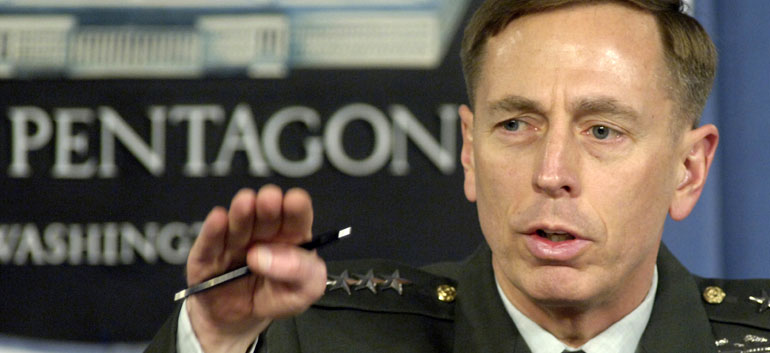David Petraeus, former head of the CIA, on Tuesday described Colombia as a “model of hope” to the world, hailing the country’s “dramatically improved” security situation throughout the last decade.
In an article published in the US journal “Politico”, the four-star general claims “the turning point” for Colombia was the 2002 election of former President Alvaro Uribe, combined with increased American aid in the form of Plan Colombia.
“Uribe brought a level of focus to the conflict that had never been previously seen, using his personality and energy to infuse a more intense and committed effort into the security forces,” argued Petraeus.
Furthermore, “American aid included signals intelligence assistance, precision-guided bombs for targeting insurgent leaders and drug lords, and helicopters for mobility so that the armed forces could get around the battlefield as needed,” explained the general.
Petraeus continued to emphasize the success of Uribe’s presidency and the effect Plan Colombia had on the Andean nation.
“By the end of his tenure in 2010, war-related civilian death rates were down by half. Colombia was beginning to enjoy an economic renaissance made possible by greater foreign investment and the return of many businessmen and other economic leaders who had fled the country,” explained the former head of CIA.
Petraeus also applauded the approach taken by current President Juan Manuel Santos, arguing that his desire for peace has not led to “a diminution of the military effort by the Colombian Armed Forces.” The government began peace negotiations with rebel group FARC in November and to date have reached an accord on one of five negotiating points, land reform.
Despite these successes, Petraeus was keen to stress that Colombia remains a troubled nation.
“Colombia is still very violent. There is no peace deal just yet, with either the FARC or a different insurgent movement, the ELN. The country is still among the largest producers of cocaine in the world. And as important as anything else, Colombia’s ability to share its expertise with other regional states, to include Mexico but especially the highly unstable countries of Central America, has only partially been tapped,” explained the general.
“As such, the United States has every reason to stay engaged with one of its strongest allies in not only the hemisphere but the world,” added the former head of CIA.
To this end, Petraeus outlined five measures which he sees as key in order to consolidate “one of the best stories on the national security front of the 21st century to date.”
- Sustain the levels of aid associated with Plan Colombia for another half decade or so. If Colombia continues to grow at 4 to 6 percent a year, we may not need to continue this kind of assistance past 2020, but there is still considerable need for foreign help.
- Encourage Colombia to use much of that funding to strengthen its presently underdeveloped judicial sector to shore up further the rule of law in a country where crime has been rampant and security forces (as well as their allies) have sometimes been implicated in misdeeds.
- Promote Colombian efforts to bring policing, justice systems, and economic development to regions of the country where guerrillas have been strong, in a tightly focused and timely way consistent with the core tenets of a comprehensive counterinsurgency strategy. These instruments of national policy have been lacking at times, particularly in the country’s remote areas.
- Link U.S. aid efforts to Central America with greater Colombian involvement in training and mentoring the security forces of countries like Panama, Honduras, El Salvador, and Guatemala so that these highly troubled states can make the kind of headway we have seen in Colombia over the past dozen years — creating the possibility for a zone of greater stability on America’s southern flank.
- Colombia can also be a future key partner on global security activities for the United States, though for the most part such more ambitious measures can await greater progress close to home.
“At a time of such great tumult and potential distraction in the broader Middle East, it is important not to lose sight of the very real challenges—and the encouraging news—closer to home,” Petraeus concluded.
Sources
- The success story next door (Politico)


